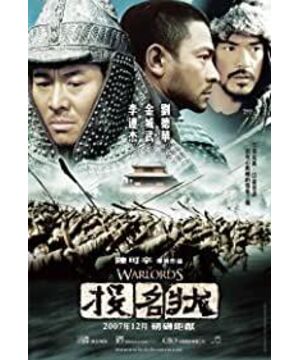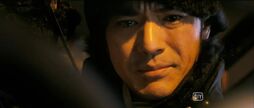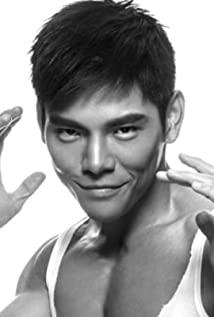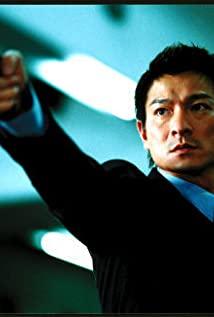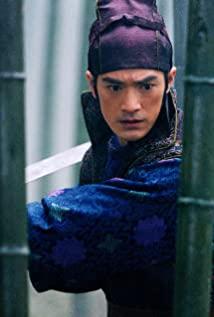In a nutshell, The Name is a tale of bromance and betrayal between brothers, looking at the transcendental love between men and the ultimate betrayal caused by the temptation of reality. There are already some outstanding examples of such stories to draw upon, one of the more prominent being Once Upon a Time in America. Compared with those successful examples, it can be seen that there are some problems in the play of "The Name".
First of all, the bedding is not thick enough. In terms of the director's intentions, the most moving and heartbreaking thing in this film is obviously the transcendent love between men. However, the generation and accumulation of this bromance in the first half did not get enough performance, so in the end when the betrayal happened, the emotional outburst did not form as expected. Let's take a look at other films. In Once Upon a Time in America, Noodles and Max roam the streets together, play prostitutes together, get beaten all over, and become gang bosses together. This is how their friendship is formed. In "The True Color of Heroes", Brother Ma and Zihao help each other and rely on each other in difficult situations. This is how their friendship is formed. In "Blood", a killer and a policeman cooperate because of mutual appreciation that transcends the barriers of identity, and their friendship is born in this way. In "Famous Name", a lot of time is reserved for the war scene. Although the three brothers went to the battlefield together, they always lacked emotional communication between individuals, making their relationship unable to surpass the relationship between ordinary colleagues and comrades in arms. When the old third Wuyang made an explosive action to maintain the brotherhood, it seemed to be just for that empty symbol to "cast a name". This is unconvincing.
Second, the question of logic. In Suzhou City, the leader of the Taiping Army is a man who walks around the library with bare feet and is full of gender-neutral qualities. It is very suspicious that such a young man with literary and artistic temperament can be a general of the peasant army. In order to save the lives of the soldiers and people in the city, this man gave the city to Erhu at the cost of suicide. I don't see the need for him to kill himself. If victory in the war was a higher value in his mind, then he should not let the city. If he thinks protecting his life is a higher value, then he shouldn't be ashamed of surrendering, and is unlikely to wait until Erhu goes to assassinate him before letting the city go. The logical problem here, the film does not give a good explanation. Another problem is that the army under Pang Qingyun shouted "grab money, grain, and territory" before attacking the city (it is said that the original version is "grab money, grain, and women"), and after attacking the city, they will suddenly arrest the adulterous people. The female soldier's beheading, this kind of change from bandit style to strict military discipline has no foreshadowing, making people feel very sudden, and feel that the character Pang Qingyun is moody.
Third, the point of view. Wu Yang's voice-over runs through "Putting Your Name" from beginning to end. It is said that Wuyang is the narrator of the story, and the whole story should be roughly unfolded from Wuyang's first-person point of view. However, a large number of scenes in the story are that Wuyang is not present. The miscellaneous first-person and third-person viewpoints are not enough for the audience to identify with the character Wu Yang, making the voice-over redundant. By comparison, Once Upon a Time in America strictly maintains the Noodles' first-person point of view, and uses the Noodles' subjective point of view as a narrative tactic, obscuring the dissonant elements of the bromance and making the final betrayal more explosive (see Dai Jinhua: "Once Upon a Time in America: The Pros and Cons of the American Dream"). If the "Certificate of Names" can still be revised, I suggest referring to "Once Upon a Time in America" to use the first-person point of view, which will increase the difficulty and challenge of the narrative, but may be more effective.
Fourth, the question of recognition. As mentioned earlier, the voiceover is not enough to make the audience identify with the role of Wuyang. It is a pity that the role of Pang Qingyun, who has the most roles, is also difficult to gain the recognition of the audience. The problem is that his performance lacks a clear logic. For a while, he insists on executing the soldiers who raped the women, claiming that he does not want to let the poor be bullied, and then he emphasizes that "the soldier never tires of deceit" and takes the victory of the war as the highest value. The lack of unity in his thoughts makes it impossible for the audience to see the development of his thoughts. When we say that a character can be recognized by the audience, it does not necessarily need to be a good person, but it needs to make the audience feel his changes. If he is a bad guy, then the audience should be able to see how he is forced to do evil, how his mind struggles, and the audience can have an empathy effect. A character who is bad from beginning to end, has no change, or cannot see the change is not suitable for the main character.
Finally, the question of dialogue. Although "The Name" is not full of dialogues that make the audience laugh like "Heroes" and "Night Banquet", there are still some places where the use of overly written language or overly modern language can be seen. In particular, it is necessary to "bleed the last drop of blood" for defending the city. This language, which is very similar to political propaganda, should still be avoided.
Looking at each scene apart, the majestic war scenes are very successful, and the documentary images also have a special effect. The spectacular and sensational are all very good. Parallel montages of Peking Opera stages and battlefields have garnered widespread acclaim. If the script is carefully revised, Director Chen may produce a Chinese costume version of Once Upon a Time in America, but unfortunately there are various problems. However, compared to some other costume blockbusters in recent years, this film still shows gratifying progress.
View more about The Warlords reviews


